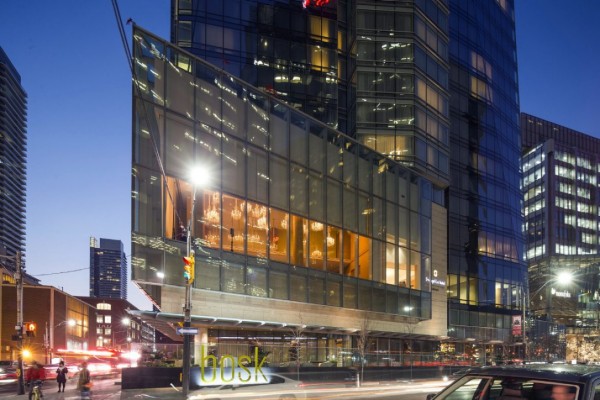Looking to rent a condo in downtown Toronto?
Make sure you have your application package when you go to look at the place, advises Toronto realtor Tarik Gidamy.
The bidding wars so prevalent in Toronto's re-sale home market are now affecting condo rentals, said the broker of record for TheRedPin, which is releasing a study of downtown rents.
"If you don't go with your package in hand — meaning your credit (application), your job reference, completed rental application and your offer, which is sometimes $50 or $100 more (than the posted rent) — you're going to lose," he said.
Smokers and owners of large pets are also at a disadvantage, said Gidamy.
Condos are increasingly recognized as a key source of housing in Toronto where they account for about 22 per cent of apartment rentals in a city that has a tight 1.7 per cent vacancy rate, which has been blamed on the lack of new purpose-built rentals.
TheRedPin data, based on prices between August 2015 and August 2016, shows that renting a condo downtown around a major core intersection will cost $1,924 on average for a one bedroom — 11 per cent or $2,256 annually more than the city-wide average.
It also shows that renting a two-bedroom in the core near an intersection for an average of $3,144 per month is about 27 per cent or $8,000 a year more than the Toronto average.
Not surprisingly, among the 24 intersections TheRedPin studied, the highest condo rents correspond to some of Toronto's most expensive real estate.
A two-bedroom unit near Avenue Rd. and Bloor St., with easy access to Yorkville cafes and Mink Mile shopping, averages $4,295 a month.
A one-bedroom condo near the Trump Tower near Bay and Adelaide streets, costs $2,095 on average.
But a short walk or subway ride can reap significant savings. A one-bedroom condo within five minutes walk of Yonge St. and Eglinton Ave., had the lowest average price in the study at $1,774. A two-bedroom unit near Dundas St. and University Ave., was a comparatively reasonable $2,675.
An earlier study by TheRedPin showed that condos on the Bay St. corridor cost more to buy than those closer to Yonge St. and the average price of a two-bedroom unit near Bloor St. and Avenue Rd., during the same period was $1.4 million.
So far, the market is absorbing the mushrooming condo towers. Whether that is sustainable remains to be seen, said Gidamy.
"The only trick to this is delivery dates. If you look at the deliverables of condos over the three years, there are gluts of 4,000 or 5,000 units being finished in a six- or eight-month span in some years. That's really the test of time. Can that absorption continue for the next five years or so?" he said.
Purpose-built rentals don't have the upscale finishes and amenities of condo buildings or the prestige of owner occupants, but they do tend to be better managed, said Gidamy.
"Most are managed extremely well and attentive to the needs of the tenants," he said.
In their verve to repel short-term rentals on platforms such as Airbnb, condos are increasingly less renter-friendly, said Gidamy.
"Condo boards are the people. The people are saying, 'I paid big money for this. I paid dollars per square foot. Why would somebody be entitled to make a return to ruin my carpets in the hallway?'"
Highest condo rent intersections in the core
Avenue Rd. and Bloor St.: $4,295 for two bedrooms; $2,072 for one bedroom
Bay and Queen streets: $4,107 for two bedrooms; $2,041 for one bedroom
Bay and Adelaide streets: $4,076 for two bedrooms; $2,095 for one bedroom
Bay and King streets: $3,864 for two bedrooms; $2,063 for one bedroom
Yonge and King streets: $3,074 for two bedrooms; $1,911 for one bedroom
Source: TheRedPin

